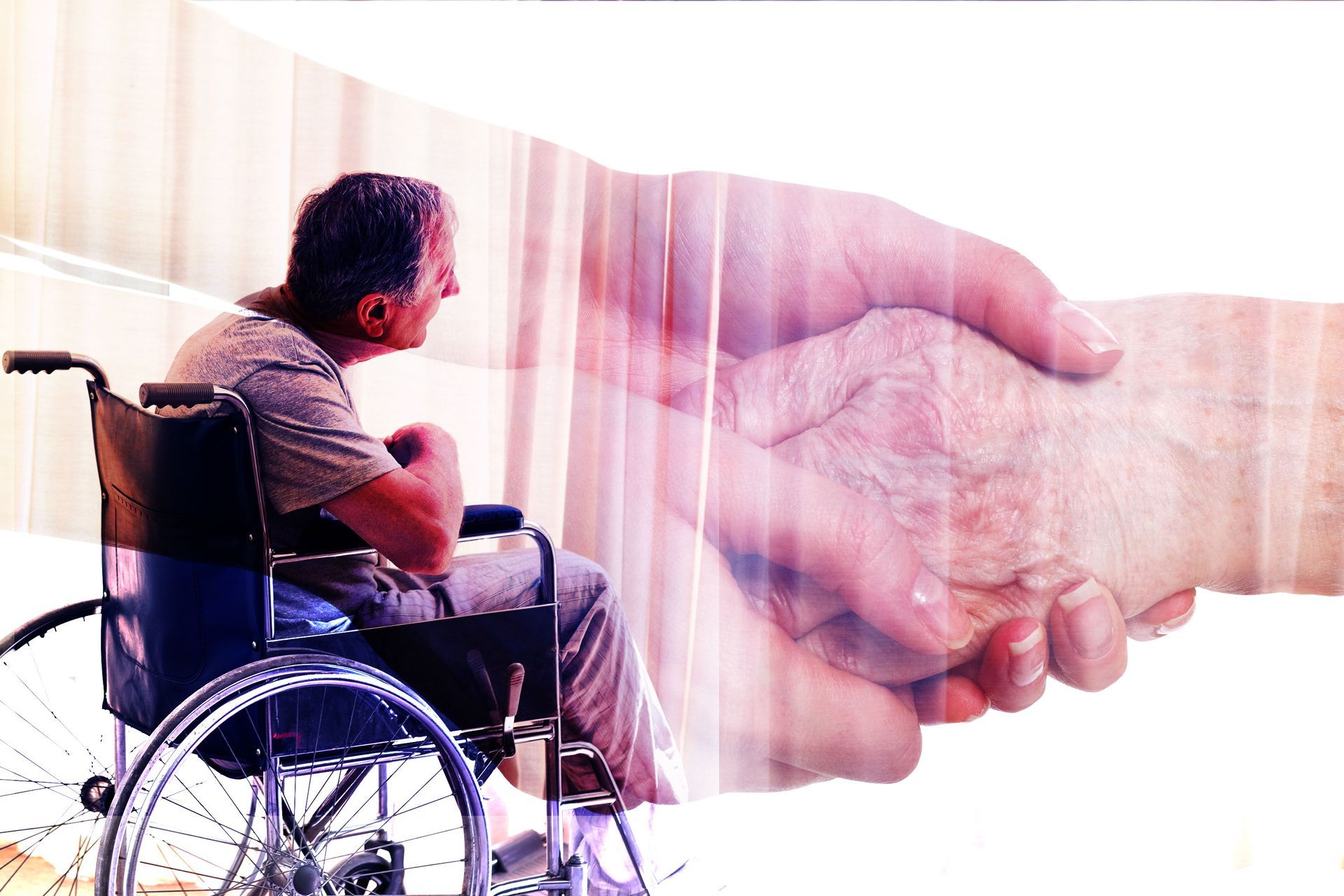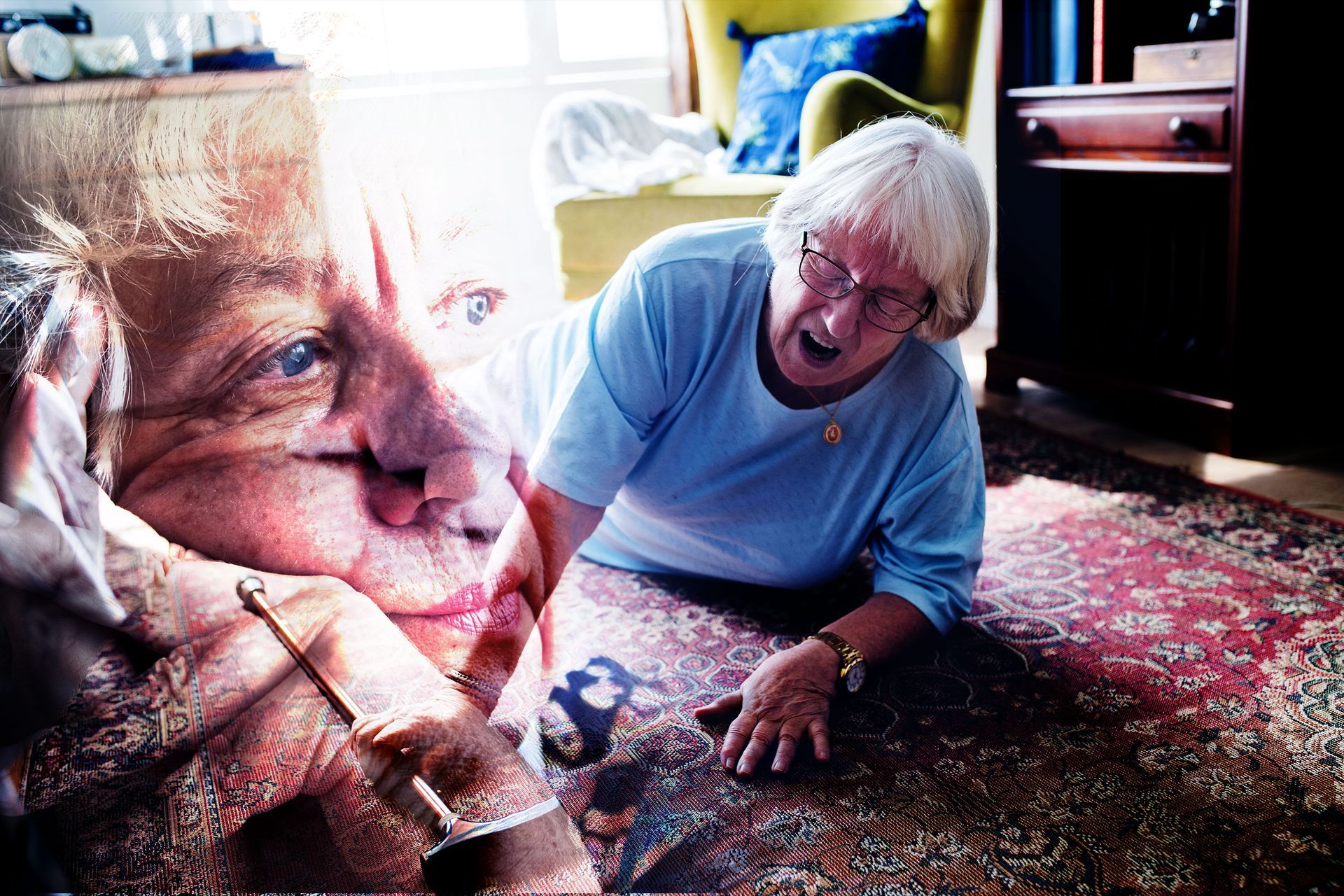Looking for a Nursing Home Abuse Lawyer to Represent you?
NURSING HOME ABUSE LAWYER : ASSISTED LIVING NEGLIGENCE ATTORNEY
REPRESENTING ABUSE AND NEGLIGENCE VICTIMS OF NURSING HOME / ASSISTED LIVING FACILITIES
You’ve had to make the difficult decision to place your aging parent or relative in a nursing home because he or she could no longer live alone safely. The purpose of making the placement was your concern for the elderly person’s wellbeing, and you expected the nursing home to be able to provide a safe environment
Nursing home abuse and negligence are growing concerns in the United States as more families rely on these facilities to care for their elderly loved ones. When the entrusted care providers fail in their duties, whether through abuse or negligence, it can result in severe physical, emotional, and financial harm to a resident.
At Gordon & Elias, LLP, believe that our senior citizens deserve to live out their years without suffering unnecessarily from avoidable injuries and abuse in nursing homes where they should be receiving excellent care. If someone you love has been injured as a result of negligent, abusive, or incompetent nursing home care, we want to help.
At Gordon & Elias, LLP, we fight aggressively to ensure that you receive the full compensation your loved one deserves.
FREE NURSING HOME ABUSE AND NEGLIGENCE CASE CONSULTATION
Take advantage of the free case review by an experienced personal injury attorney at Gordon & Elias LLP to learn what options are available to help you and your parent. We have extensive experience handling assisted living negligence and nursing home abuse cases.
We will give you the attention you deserve. Call for an appointment today. We have an office in Houston, as well as a Rio Grande Valley office in Edinburg, Texas.
NO UPFRONT FEES
After discovering that your loved one has suffered a abuse or an accident due to negligence do not wait to contact a personal injury attorney. A knowledgeable lawyer from Gordon & Elias, LLP will review your case and explain the victim’s rights for free. Most personal injury lawyers handle cases including assisted living negligence and nursing home abuse, on a contingent fee bases. Our consultation is free, but a percentage on the amount recovered, usually 33.33%, will be taken as our lawyer's fee.
Contact Gordon & Elias, LLP today to learn how we can help you recover the compensation your loved one deserves. We handle all the costs of investigating and pursuing your claim, and you only pay us if we recover money for you.
Do not immediately accept an insurance settlement if an insurance company contacts you.
We strongly advise you to first speak with a lawyer who is knowledgeable with serious nursing home abuse and assisted living negligence cases.
Call us at
(800) 773-6770 to discuss the details of your accident and injury claim right away. We can provide trustworthy legal advice and guide you through the rest of the steps toward obtaining fair and full financial compensation.

UNDERSTANDING NURSING HOME ABUSE AND NEGLIGENCE
Nursing home abuse refers to intentional acts by caregivers or staff that cause harm to a resident, while negligence involves a failure to provide adequate care, leading to harm or injury. Both are unacceptable breaches of duty, and the effects on the elderly can be devastating.
Forms of Abuse
- Physical Abuse: This includes hitting, pushing, or unnecessary restraint, leading to injuries like fractures, bruises, or even internal damage.
- Emotional Abuse: Verbal threats, insults, intimidation, or isolation are often used to emotionally manipulate or control residents.
- Financial Exploitation: This occurs when an elder's financial assets are misappropriated by caregivers or other nursing home personnel.
- Neglect: When nursing home staff fail to provide adequate care, resulting in malnutrition, dehydration, bedsores, and untreated medical conditions.
- Sexual Abuse: A deeply disturbing form of abuse, involving any non-consensual sexual contact with an elderly resident, which may go unnoticed due to the victim’s inability to communicate.
Forms of Negligence
- Medical Negligence: Failing to provide proper medical care, which can result in preventable conditions such as infections, bedsores, or malnutrition.
- Neglect of Basic Needs: Failing to provide adequate food, water, or hygiene can result in severe health problems.
- Neglect of Personal Care: Ignoring residents’ personal care needs, including helping them dress, clean, or move around, can lead to physical and emotional decline.
- Supervisory Negligence: Failure to prevent accidents, falls, or resident-to-resident aggression can also result in serious injury.
In nursing home and assisted living facilities, negligence can lead to various serious injuries that impact residents' health and quality of life. Below are some common injuries in these settings that are often the result of poor care or oversight:
Bedsores/Pressure Ulcers
Bedsores, also known as pressure ulcers, develop when a resident is left in one position for an extended period without being moved or repositioned. This often occurs in bedridden or immobile patients who rely on nursing home staff for assistance. Failing to regularly reposition residents, provide proper bedding, or treat early signs of skin breakdown can lead to severe pressure ulcers, which may result in infections, tissue damage, or even death.
Fractures
Elderly residents with osteoporosis or weakened bones are particularly susceptible to fractures. Fractures, especially hip fractures, are common in elderly residents, often caused by falls. In nursing homes, these falls are frequently due to unsafe environments, improper assistance, or the misuse of mobility aids.
When nursing home staff fail to supervise residents properly, neglect to provide assistance with walking, or ignore safety protocols, falls that lead to fractures can occur. In severe cases, these fractures can lead to long-term disability or death.

Medication Errors
Medication errors occur when a resident is given the wrong medication, incorrect dosage, or experiences drug interactions that could have been prevented. These errors can lead to serious health consequences, including dizziness, confusion, internal bleeding, organ failure, or even death.
Nursing home staff are responsible for ensuring that residents receive the correct medications as prescribed. Failing to follow proper medication administration protocols or monitor drug interactions can lead to serious injury or death.
Malnutrition and Dehydration
Malnutrition and dehydration can occur when nursing home residents are not provided with adequate food and fluids, or when staff fail to monitor a resident's dietary needs. This is especially common in residents who have difficulty eating or drinking on their own. Nursing homes have a duty to provide residents with proper nutrition and hydration. Failure to ensure that residents are eating and drinking adequately can lead to weight loss, weakness, cognitive decline, and other severe health problems.
Infections
Infections in nursing homes can stem from poor hygiene practices, improper wound care, unsanitary conditions, and failure to follow infection control protocols. Common infections include urinary tract infections (UTIs), respiratory infections, and infections from bedsores. Nursing home staff must maintain cleanliness, sterilize equipment, and properly care for wounds. Failure to do so can result in severe infections, which are particularly dangerous for elderly residents with weakened immune systems.
Wrongful Death
Wrongful death in a nursing home setting can result from a variety of negligent actions, including failure to provide proper care, medication errors, malnutrition, dehydration, untreated infections, or serious falls. When negligence leads to a resident’s death, their family may pursue legal action for wrongful death.
In cases of wrongful death, it must be shown that the nursing home or assisted living facility failed to meet its duty of care to the resident. This could involve lack of supervision, failure to treat medical conditions, or outright abuse or neglect.
RECOGNIZING SIGNS OF NURSING HOME ABUSE OR NEGLIGENCE
It is often difficult for families to detect signs of abuse or negligence, especially if the elderly resident is unable to communicate effectively. However, some warning signs include:
- Unexplained Injuries: Broken bones, bruises, or cuts that are not consistent with the resident’s medical history.
- Sudden Weight Loss: This may indicate malnutrition or neglect of dietary needs.
- Poor Hygiene: Foul odors, dirty clothing, or unclean living environments.
- Changes in Behavior: Sudden withdrawal, depression, or fearfulness may indicate emotional or psychological abuse.
- Bedsores or Other Preventable Conditions: These are common signs of neglect, particularly if the resident is bedridden and not receiving adequate care.
- Financial Irregularities: Unexplained withdrawals from bank accounts or changes to financial documents may point to financial abuse.

THE LEGAL RIGHTS OF NURSING HOME RESIDENTS
The Nursing Home Reform Act of 1987 established the rights of residents in nursing homes and assisted living facilities. This federal law requires that nursing homes promote and protect the rights of each resident, ensuring they receive adequate care in a safe, supportive environment. Specific rights include the right to be free from abuse and neglect, to maintain personal dignity, and to have their healthcare needs met. When these rights are violated, legal recourse is available to hold facilities accountable.
Additionally, many states have enacted laws to reinforce protections for nursing home residents, creating specific guidelines for the standard of care nursing homes must provide. Victims of abuse or negligence, or their families, can file lawsuits to seek compensation for the injuries and damages sustained.
LEGAL ACTION FOR NURSING HOME ABUSE AND NEGLIGENCE CASES
If you suspect your loved one is a victim of nursing home abuse or negligence, taking swift action is essential. Gordon & Elias LLP can guide you through the following steps:
Document the Evidence: Collect as much evidence as possible, including photographs of injuries, medical records, and financial statements. Any written communications with the nursing home administration can also be crucial.
Report the Abuse: Notify the appropriate authorities, including local law enforcement, state health departments, and the facility’s administration. Filing an official complaint creates a formal record of the abuse or neglect.
GORDON & ELIAS LLP’S COMMITMENT TO JUSTICE
Gordon & Elias LLP is dedicated to protecting the rights of nursing home residents by pursuing legal action against negligent or abusive facilities. The firm has extensive experience handling complex nursing home abuse and negligence cases, fighting for the justice and compensation that victims and their families deserve.
Experience and Knowledge: The firm’s attorneys are well-versed in personal injury law, particularly when it comes to elder abuse and nursing home negligence cases
Investigating Claims of Abuse and Negligence: The attorneys at Gordon & Elias LLP conduct thorough investigations, working with medical experts, reviewing records, and speaking with witnesses to build a strong case. Many nursing home abuses go unnoticed, making it essential to gather as much evidence as possible to establish a pattern of mistreatment or negligence.
Filing Lawsuits and Pursuing Compensation: Once the investigation confirms abuse or negligence, Gordon & Elias LLP aggressively pursues legal action. This can include filing lawsuits against the nursing home, individual staff members, or corporate owners, depending on the circumstances. Compensation may include medical expenses, pain and suffering, emotional distress, and even punitive damages in extreme cases.
Holding Nursing Homes Accountable: Nursing homes are often part of large, profit-driven corporations, and it can be challenging for victims and their families to navigate the complex legal landscape of these institutions. Gordon & Elias LLP has extensive experience taking on large nursing home chains, ensuring that they are held responsible for the substandard care or outright abuse of their residents.
Nursing home abuse cases are emotionally charged and can be incredibly stressful for families. Gordon & Elias LLP understands the sensitive nature of these cases and provides compassionate legal guidance, ensuring that victims and their families are heard and supported throughout the process.
We have a reputation of bringing respect, professionalism and a personal touch to every injury claim we accept.
Every state limits the amount of time you have to file a claim.
Don't Delay.
Contact the Attorneys at Gordon & Elias, LLP Today to preserve your right to a recovery.
Contact Us
We will get back to you as soon as possible.
Please try again later.
100% FREE CASE EVALUATION
Free Consultation • No Fee If No Recovery



